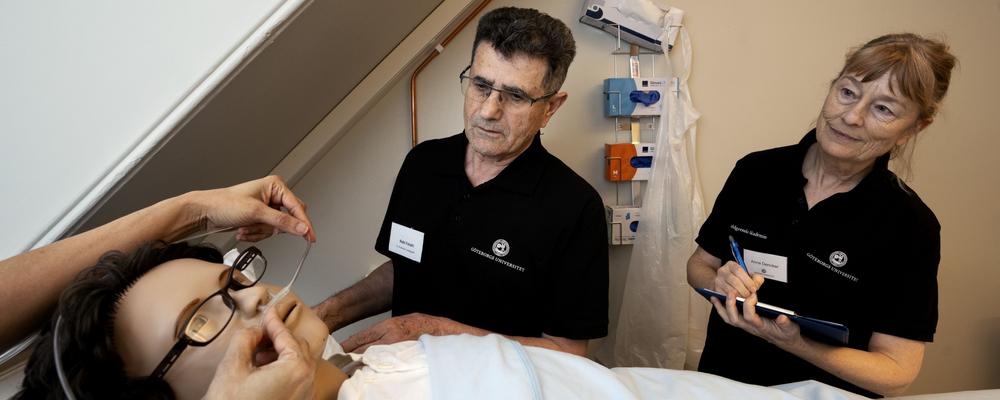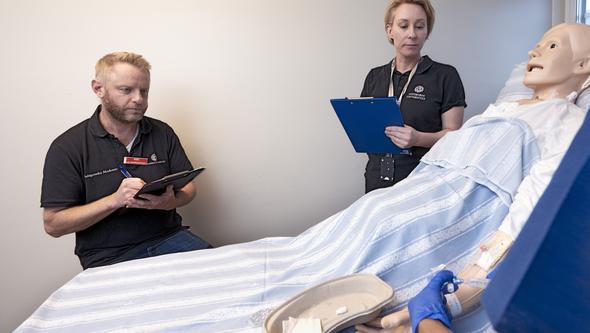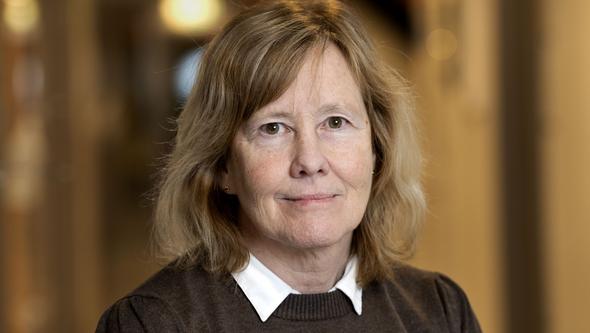
- Home
- News and events
- Find news
- 500 nurses examined via knowledge test
500 nurses examined via knowledge test
A tough test for quick access to the Swedish healthcare work market. This is how the knowledge test for the Swedish nursing qualification has been described, with the University of Gothenburg having examined 500 candidates so far. The University will soon begin another period of national responsibility for the test.
The University of Gothenburg has one of Sweden’s highest numbers of applicants for the nursing program. As well as the standard three-year program, there is also a three-semester supplementary program for nurses who have graduated outside the EU, the EEA, and Switzerland.
For those with an overseas degree from these other countries, there is also another option: a knowledge test for which the University of Gothenburg has been the national provider on behalf of the National Board of Health and Welfare since 2016. The test is not as widely known, but the number of examinations passed is now starting to increase.
“These are trained nurses, for whom we have a real need,” says registered nurse Inger Jansson, who is Associate Professor of Nursing and Assistant Head of Department with responsibility for education at the Institute of Health and Care Sciences. “Many of them have extensive experience from their former home countries, which in itself is a great source of knowledge.”
A demanding fast track
Anyone who wants to take the knowledge test must first have their foreign degree assessed by the National Board of Health and Welfare. If their training is deemed to meet the requirements, they are welcome to take the test.
The knowledge test is a relatively fast track, but is also demanding. The initial written stage takes half a day, and presents candidates with patient cases to test their knowledge, understanding, and judgment. It also includes pharmaceutical calculations. Everything is done in Swedish.


The same applies to the subsequent practical stage. This involves around ten participants per session carrying out procedures such as sampling, injections, infusions, and catheter replacements – half a day with a total of six steps in a simulated environment.
To meet the geographical coverage requirement, the test is also held in Kalmar (the written and practical stages) and Umeå (the practical stage). Here, Linnaeus University and Umeå University are subcontractors to the University of Gothenburg.
After passing the knowledge test, there is a three-month placement, arranged by the participant themselves, as well as courses on the Swedish language and Swedish regulations. An application for a Swedish nursing license is then submitted to the National Board of Health and Welfare.
Making good use of knowledge
The written stage of the test is the same as the final examination at many Swedish educational institutions, which ensures quality. The practical test is also assessed and quality assured in cooperation with the two other universities.
34-year-old Khushbu Patel has completed the knowledge test for the nursing degree. She took the test in 2018, and subsequently also took a knowledge test to have her foreign midwifery training assessed in Sweden. She now works as a midwife in Gothenburg.

“This is a good way to avoid having to study again,” she says. “I found the nursing test difficult because it was in Swedish. I had done my training in India in English, but if you have the right knowledge you can pass it. When I did the midwifery knowledge test, I found it easier.”
The fact that the University of Gothenburg has received renewed confidence from the National Board of Health and Welfare for the second time since 2016 to be responsible for the nursing degree knowledge test is seen as confirmation of a job well done. The latest contract covers the four-year period from July 2024 onwards.
“It’s gratifying that we can continue to organize the knowledge test,” adds Inger. “We see making good use of the knowledge that experienced nurses bring to Sweden as an important assignment.”

